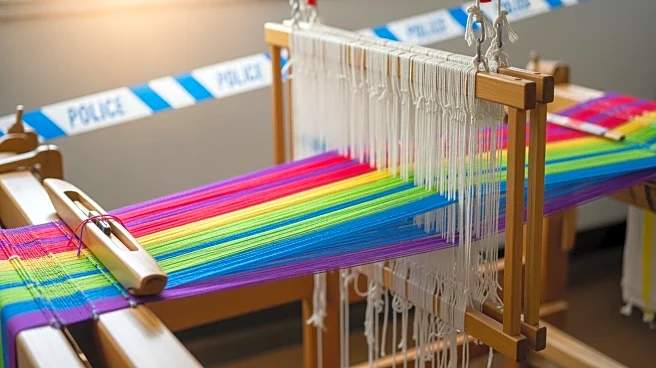What's Happening?
Tapestry, the parent company of luxury brands Coach and Kate Spade, has been recognized for its environmental sustainability efforts, making significant gains in reducing greenhouse gas emissions, water usage, and waste generation. The company improved
its greenhouse gas emissions by more than 25%, its water usage score by 16%, and its waste generation score by almost 10%. Tapestry's Fabric of Change strategy focuses on investing in a diverse workforce, biodiversity solutions, product innovations, and empowering communities. The company has achieved 96% renewable energy for its global operations and sourced 99% of its leather from Silver- or Gold-rated Leather Working Group tanneries.
Why It's Important?
Tapestry's achievements in sustainability are significant as the fashion industry is known for its environmental impact, producing 92 million tons of textile waste globally each year. By setting new standards, Tapestry is leading the way for other companies to follow suit, potentially reducing the industry's carbon footprint. The company's commitment to sustainability aligns with consumer demand for environmentally friendly products, with 80% of consumers willing to spend more on sustainably produced goods. Tapestry's approach could influence other brands to adopt similar practices, driving a shift towards a more sustainable future in fashion.
What's Next?
Tapestry plans to continue its sustainability efforts by supporting new solar capacity projects and aiming for 40% renewable energy in its supply chain by Fiscal Year 2030. The company also intends to phase out coal completely by 2026. As consumer demand for sustainable products grows, Tapestry's initiatives like Coach (Re)Loved and Coachtopia are expected to gain popularity, further solidifying its position as a leader in sustainable fashion.
Beyond the Headlines
The fashion industry's supply chain is expansive, touching other industries like farming and agriculture. Tapestry's efforts to map out 95% of its raw materials and engage suppliers in reducing emissions highlight the importance of transparency and collaboration in achieving sustainability goals. As consumers become more knowledgeable about sustainability, brands like Tapestry that demonstrate genuine commitment are likely to gain consumer trust and loyalty.
















